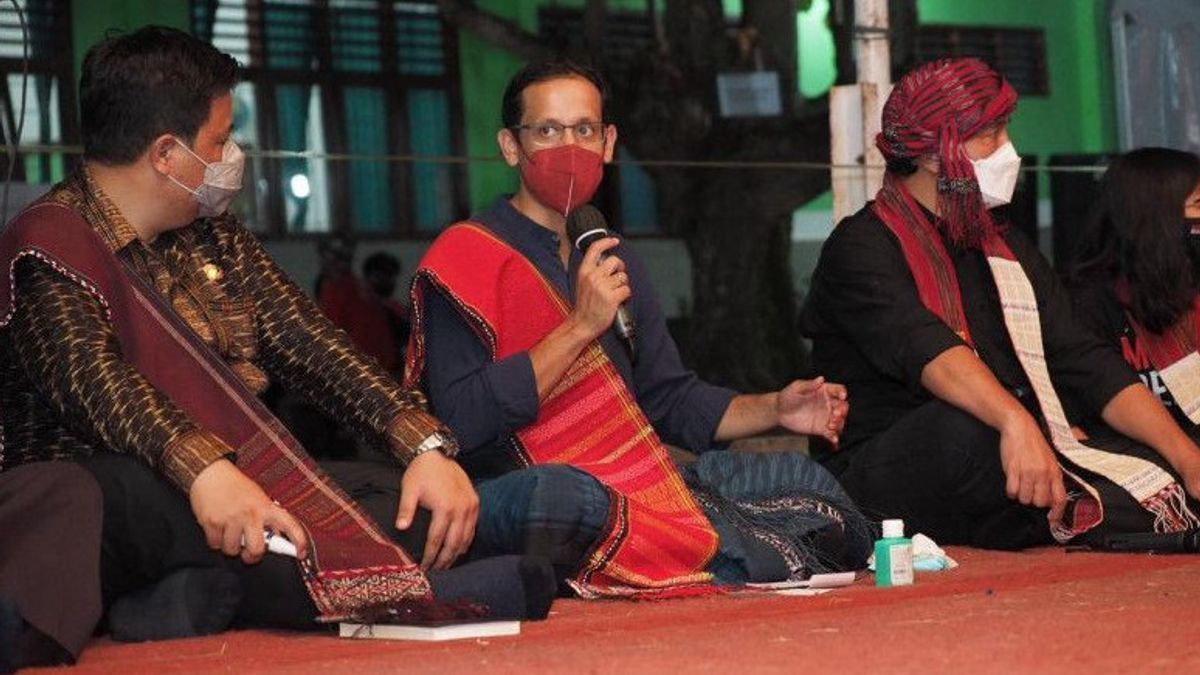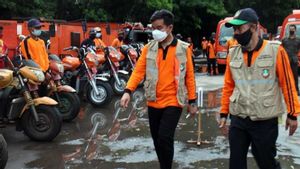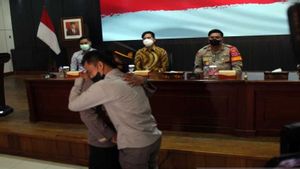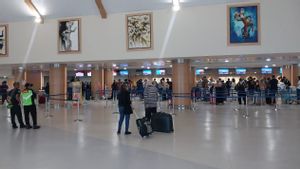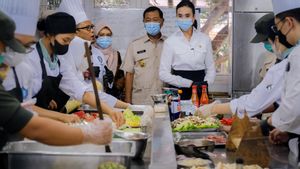JAKARTA - Minister of Education, Culture, Research and Technology (Mendikbudristek) Nadiem Anwar Makarim said, currently Indonesia is in an emergency situation of sexual violence in universities.
"We are in an emergency situation of sexual violence in a university environment. You could say the situation is critical, we are not only experiencing a COVID-19 pandemic but also a sexual violence pandemic," said Nadiem at the launch of 'Merdeka Belajar episode 14: Kampus Merdeka dari Kekerasan Seksual, ' reported by Antara, Friday, November 11.
Data from Komnas Perempuan states that sexual violence occurs at all levels of education. As many as 27 percent of the complaints received occurred in higher education.
Also, from a survey conducted by the Ministry of Education and Culture, 77 percent of lecturers stated that sexual violence had occurred on campus. As many as 63 percent of them did not report the cases they knew to the campus.
Nadiem added that he is currently on the iceberg phenomenon, which if scratched a little, the phenomenon of sexual violence occurs in all campuses.
"The government needs to take steps to protect lecturers and students as well as education staff from sexual violence," he added.
SEE ALSO:
Nadiem added that sexual violence is the most difficult to prove, but the effect is very large and long-term on the victim. He gave an example of how a student who experienced sexual violence on campus, tried to report but was not responded to, became depressed, and eventually left campus.
The Minister of Education and Technology emphasized that it is impossible for a campus to provide quality learning if lecturers, students, and education staff do not feel safe and comfortable. The impact of one event can be felt for a lifetime because it has a lifelong psychological impact.
“We already have several laws, but there are vacancies in universities. We have a child law, but that's only under 18. There is an elimination of domestic violence (PKDRT) Law, but only in the household sphere, we have a TIP Law but only to ensnare human trafficking syndicates. So there is a void because those who have not been protected are over 18 years old, not married or not married, and are not trapped in human trafficking syndicates,” he explained.
For this reason, it is necessary to have specific and specific rules in protecting campus residents. He also mentioned that there are some limitations in handling cases of sexual violence in the current Criminal Code, namely not being able to facilitate the identity of victims who are not regulated by other regulations, not recognizing online gender-based violence (KGBO), and only recognizing forms of rape and obscenity.
Even though the academic community and education staff are very vulnerable to experiencing KBGO because that age range is active users of social media and also lectures during the COVID-19 pandemic are mostly done online.
The English, Chinese, Japanese, Arabic, and French versions are automatically generated by the AI. So there may still be inaccuracies in translating, please always see Indonesian as our main language. (system supported by DigitalSiber.id)
